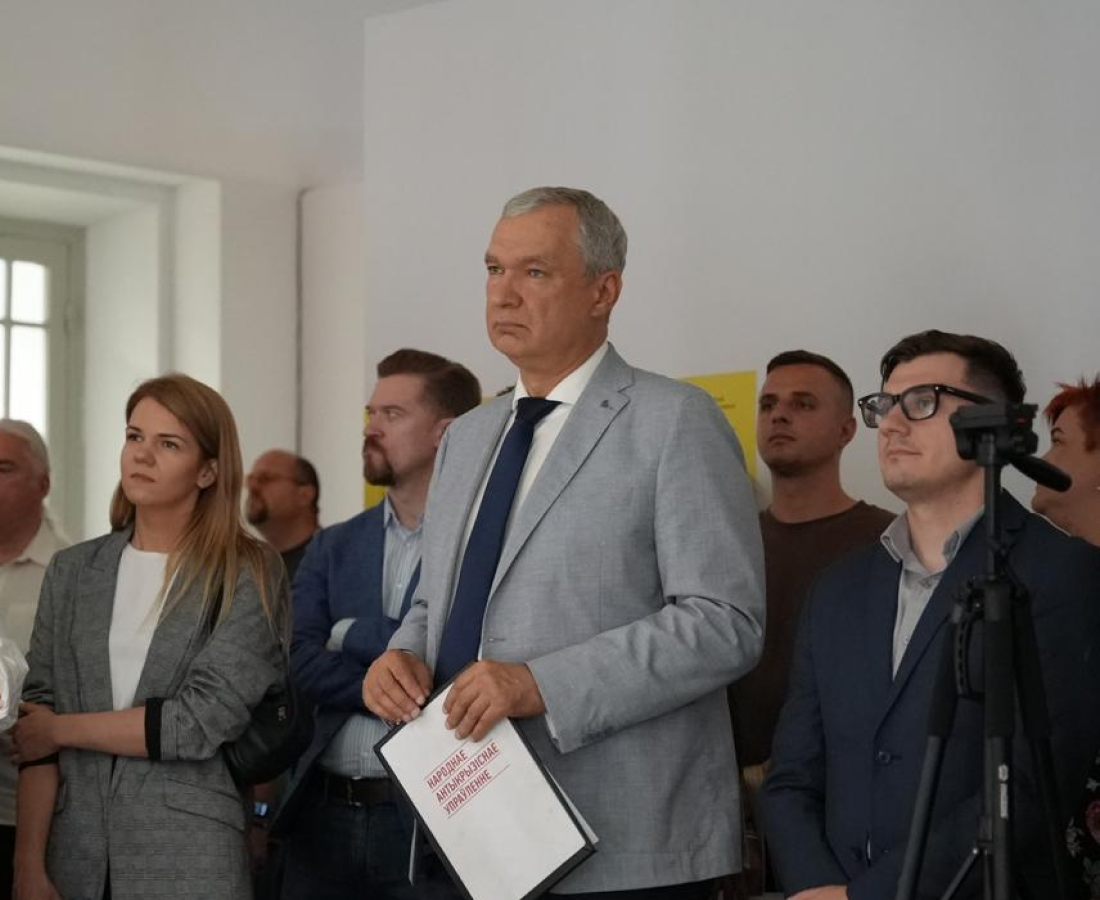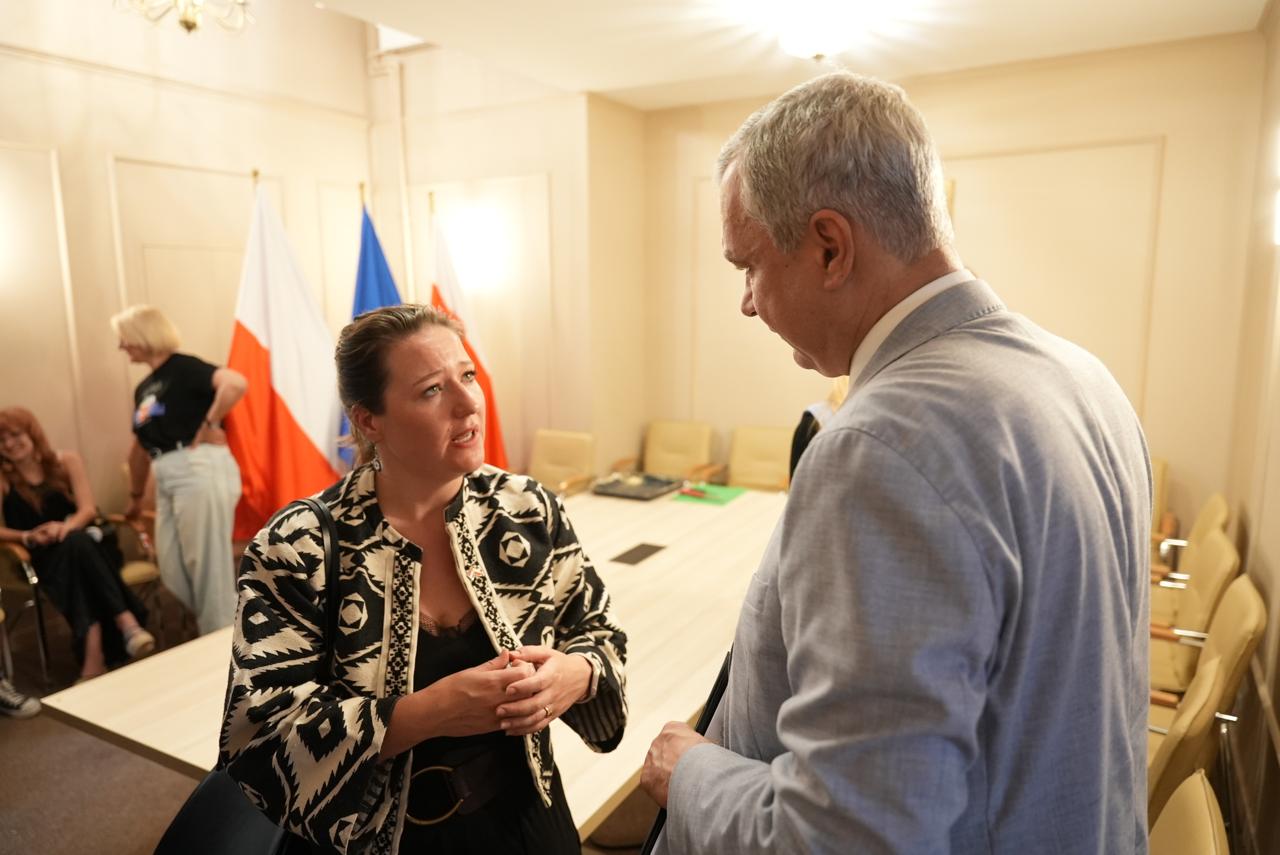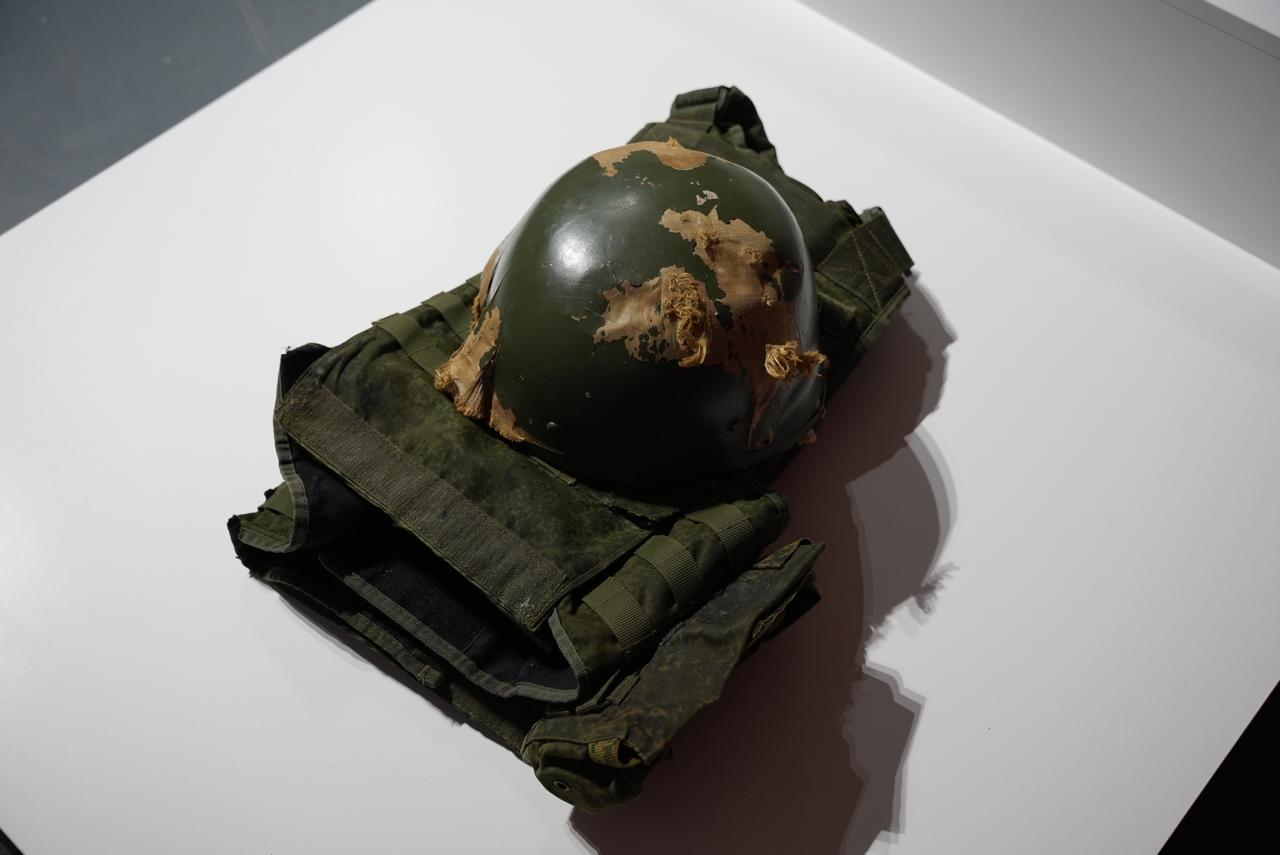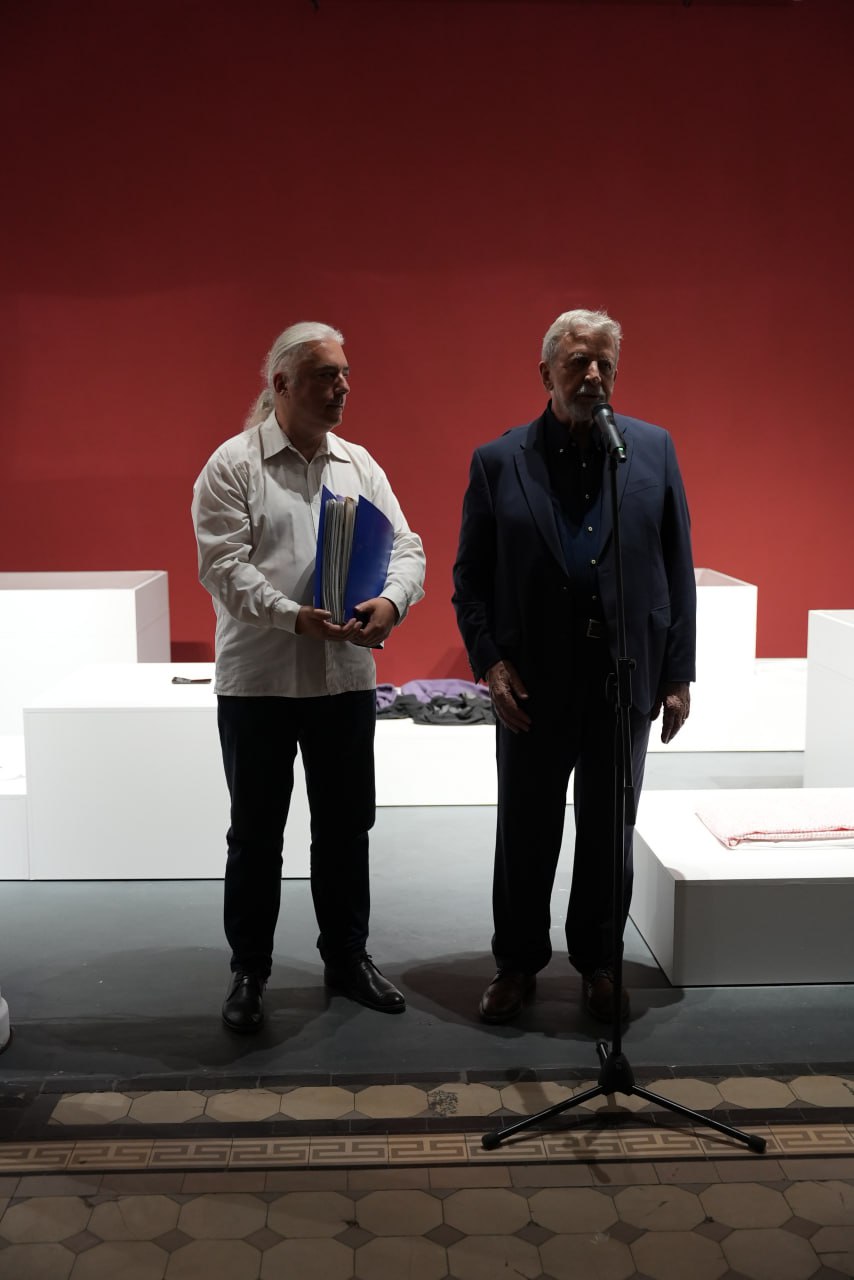
“The Museum of Free Belarus prevents us from forgetting the sacrifices that were made and reminds us all: as long as memory lives, Belarus lives and continues to fight,” said Pavel Latushka, Deputy Head of the United Transitional Cabinet and Head of the National’s Anti-Crisis Management, during the opening of the exhibition Fragments, an event marking the third anniversary of the Museum of Free Belarus, a NAU project.
The exhibition opening was attended by Natallia Zadziarkouskaya, director of the Museum of Free Belarus; Jetske Klein, Deputy Head of the Embassy of the Netherlands in Minsk; Robert Piątkowski, director of the National Centre for Culture of Poland; former Belarusian presidential candidate and Chancellor of the Free Belarusian University Alyaksandr Milinkevich; as well as Polish and Belarusian historian Pavel Kazanetski and documentary filmmaker Maksim Shved.
“In my life, I have had the opportunity to open a number of museums: the Nesvizh Palace complex (the former residence of the Radziwiłłs), Mir Castle, the National Centre for Contemporary Art, to fight for the creation of the Vasily Bykov Museum near Minsk, and many others. But this museum—the Museum of Free Belarus—holds a special significance for me as someone who has witnessed and participated in these events.”



The Museum of Free Belarus has become a place where the largest modern movement of Belarusians for freedom is not merely recorded—it continues to live. It is a space that unites Belarusians in exile and brings the truth about Belarus to Europe and the world. “Preserving this history today is not a right, but a duty to the nation and its future,” emphasized Pavel Latushka.
In her speech, Jetske Klein, Deputy Head of the Embassy of the Netherlands in Minsk, highlighted:
“The Museum of Free Belarus has become a vibrant place. Today it is already an important point on the map of Warsaw. But even more than that—it is a living archive of a people who have not been broken.
Yet we should not have illusions: no museum exists on ideas alone. Even the warmest atmosphere in Poland cannot replace stable financial support. Therefore, allow me to use this opportunity to make a gentle but firm call to everyone here: let us talk about this museum, speak about it, support it, and invest in it. This is not just a project—it is a shared responsibility.”
Alyaksandr Milinkevich and Pavel Kazanetski donated a personal archive dedicated to the 2001 presidential elections to the museum, while documentary filmmaker Maksim Shved handed over his personal phone, which had been broken by security forces during his detention in August 2020.
The exhibition and concert are part of the project Kreatywna prezentacja Muzeum Wolnej Białorusi dla społeczności artystycznej i mieszkańców Warszawy, co-financed by the Warsaw City Hall.
Original article: НАУ